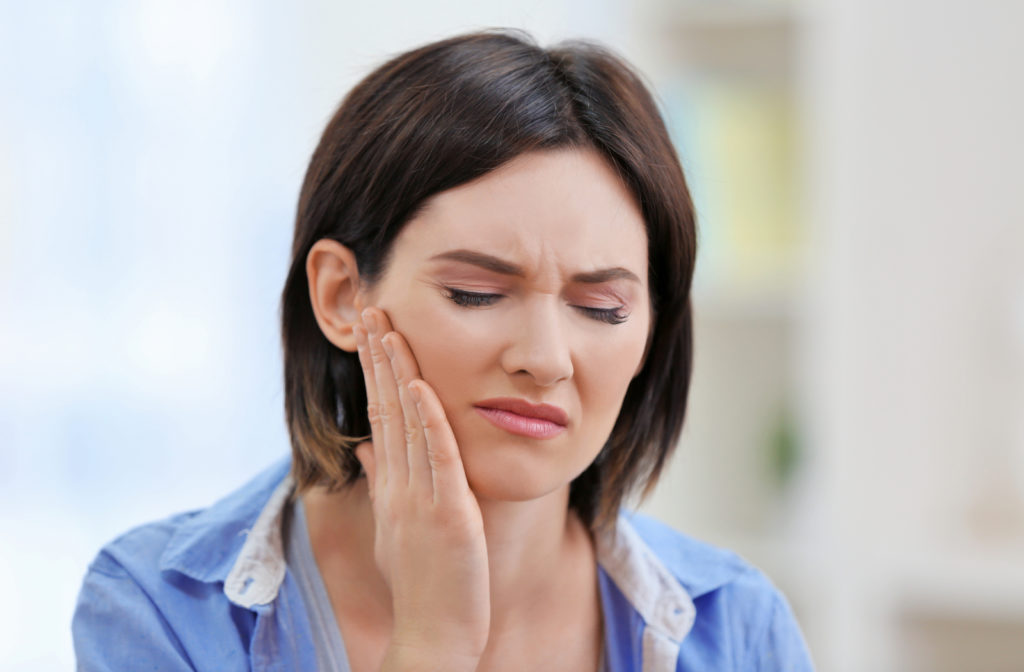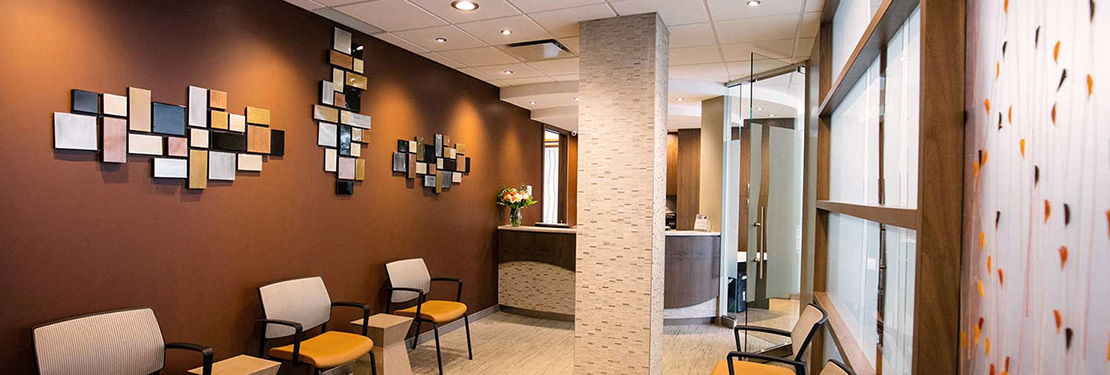
What is TMD?
TMD stands for temporomandibular disorder, which is a disorder of the temporomandibular joint. Essentially, TMD is an umbrella term that covers pain and discomfort of the jaw joint.
The temporomandibular joint (TMJ) is where your jawbone (mandible) connects to your skull. The TMJ is one of the most complex joints in the body as it can move in all directions and exert extreme force. In order for you to speak, chew, and swallow, the muscles, ligaments, and bones in the TMJ need to be functioning properly. When there is an issue with the TMJ, it can lead to TMD.
What is the Difference Between TMD & TMJ?
You might have heard someone refer to jaw discomfort or issues as TMJ, but that is actually a misnomer. TMJ stands for temporomandibular joint and refers to the part of the body that connects your jawbone to your skull. TMD stands for temporomandibular disorder and refers to various issues with the TMJ.
What Causes TMD?
There are many different causes, and in many cases, TMD is caused by a combination of factors.
Bruxism
Bruxism, or teeth grinding, can lead to TMD, especially when it is chronic or long-term. Many people have no idea they have bruxism as the teeth grinding occurs while you sleep. Often, many people are unaware they grind their teeth until they begin to experience discomfort. Your dentist may also notice severe bruxism as it can wear down your teeth, causing them to become shorter and weaker.
Joint Disease or Injury
Muscle tension is the most common cause of TMD. Often, the muscle tension is caused by stress, which leads you to clench or grind your teeth. Arthritis in the jaw is another cause. It can lead to cartilage damage, and ultimately, the discomfort of TMD.
Injuries and irregularities in the jaw area can also lead to TMD. A blow or impact to the jaw can cause TMD, either immediately or further down the line. A jaw injury may cause the disc that cushions the TMJ to move out of proper alignment and erode, another cause of TMD.
Other Causes
Often, it is a combination of causes that lead to TMD. Other causes that can contribute to the disorder include improperly fitted dentures and nail or pencil biting.
What Are the Symptoms of TMD?
Pain or tenderness around the jaw area are some of the most common symptoms, but TMD pain isn’t limited to the jaw. In some cases, this pain can extend from the neck to the temples.
- Jaw pain & stiffness
- Clicking, popping, or grinding noises in the jaw
- Difficulty opening the mouth fully
- Lockjaw
- Headaches
- Earaches
- Facial pain
- Temple pain
- Neck pain
You may also experience teeth symptoms like chipped teeth if your TMD is caused by bruxism.
How Do You Treat TMD Pain?
Depending on the cause and severity, mild or temporary TMD discomfort can go away on its own. For TMD that is chronic or severe, it’s often difficult to treat without advice from your dentist.
Lifestyle Changes
For temporary or mild TMD, there are a number of lifestyle adjustments that can provide you with relief. A cold compress can treat inflammation and a warm compress and gentle massage can help ease discomfort. Limiting stress on your jaw can also help. Choose soft foods and cut food into small pieces. Avoid hard, sticky, or chewy foods and avoid opening your mouth too wide.
It’s impossible to control habits like teeth grinding while you sleep, but you can practice relaxing your jaw muscles while you’re awake. Keep your teeth slightly apart with your tongue resting on the floor of your mouth. Your lips should barely touch or be slightly apart when your jaw is fully relaxed.
Night Guards
Also known as an occlusal splint, a nightguard is a special type of dental appliance from your dentist. It’s similar to a mouthguard, but nightguards contain a thicker portion between your top and lower teeth to limit damage from teeth grinding and clenching.
The device is worn while you sleep to reduce the effects of bruxism and alleviate TMD pain. If you have dental coverage, a portion of the cost of a custom nightguard from your dentist is often covered.
Physical Therapy
Often, your dentist will first recommend a nightguard for TMD, especially if your TMD is associated with bruxism. If a nightguard doesn’t provide you with relief, your dentist can refer you for physical therapy specifically for TMD.
Many physiotherapists and chiropractors offer services for TMD and can recommend exercises to alleviate discomfort. Some patients also find massage helpful. Look for a massage therapist that specializes in TMD treatment, or ask your dentist for a recommendation.
Other Treatments
If the above treatments don’t work for you, your dentist can refer you to a TMD specialist. Surgery usually isn’t recommended unless your TMD is so severe it prevents you from opening your jaw. Additional treatments include trigger-point injections and radio-wave therapy, but many TMD patients find relief with a nightguard combined with lifestyle modifications.







